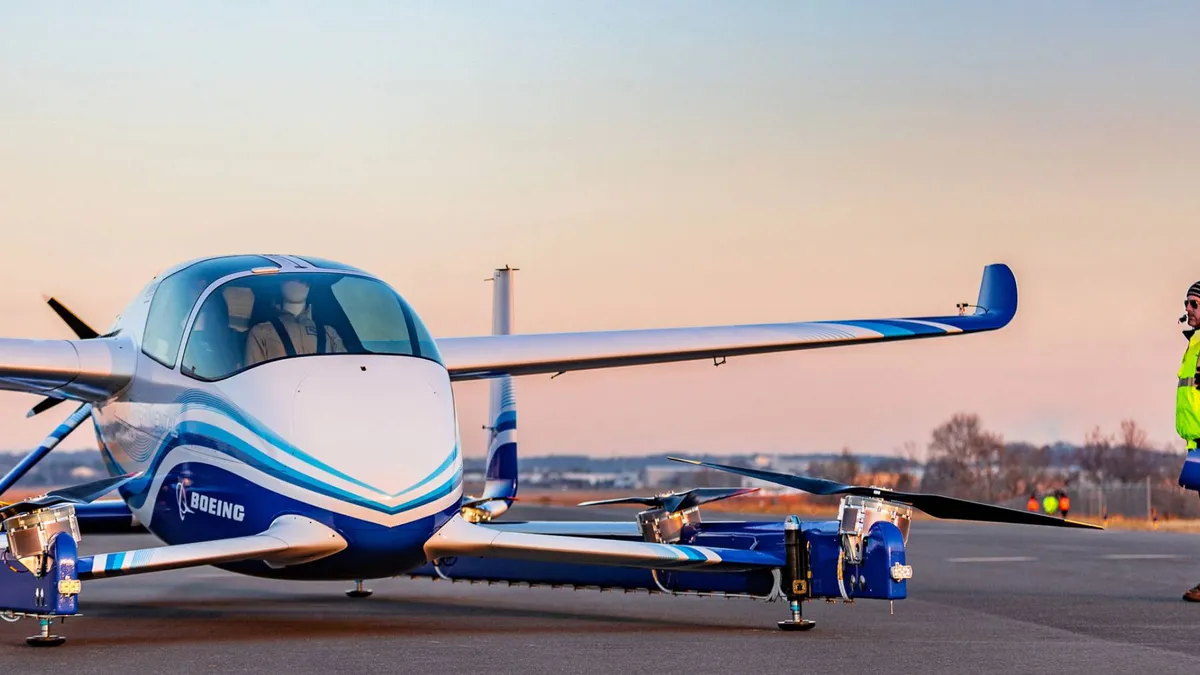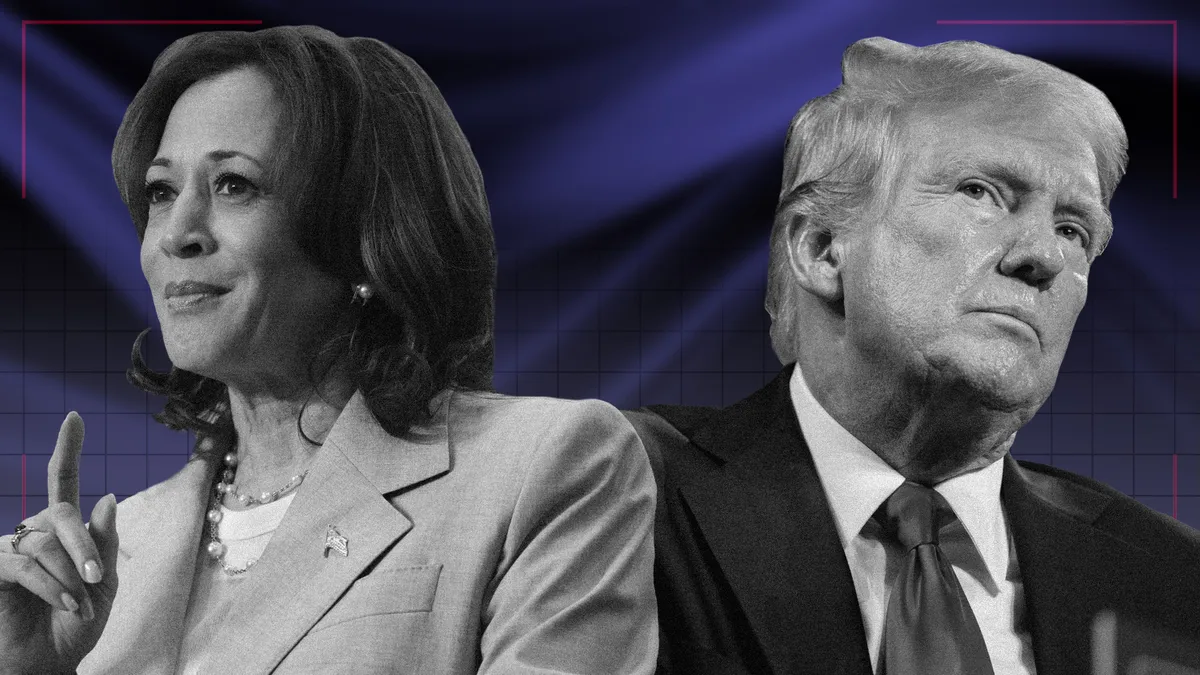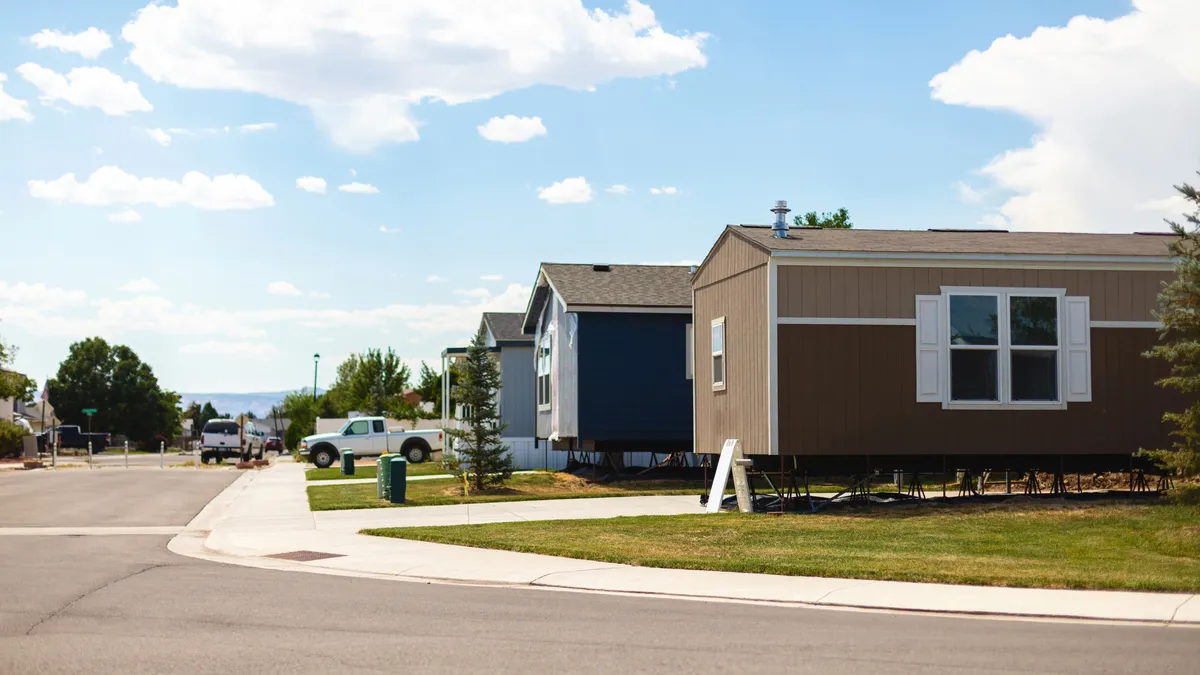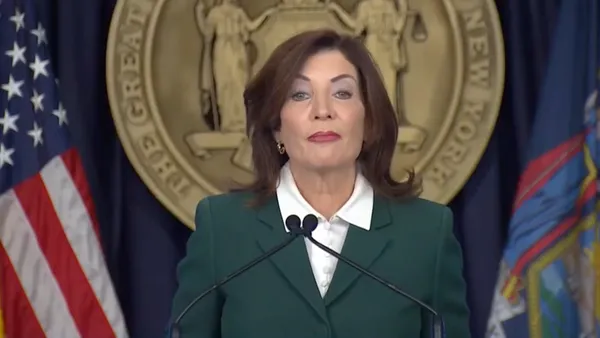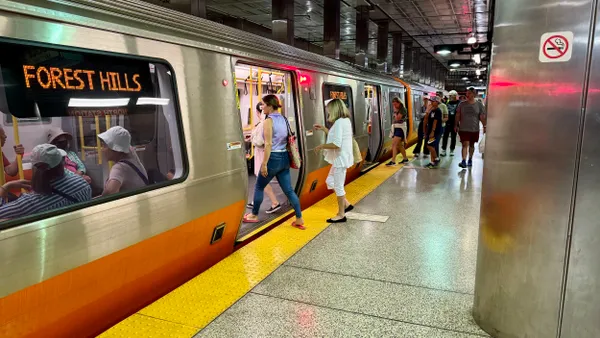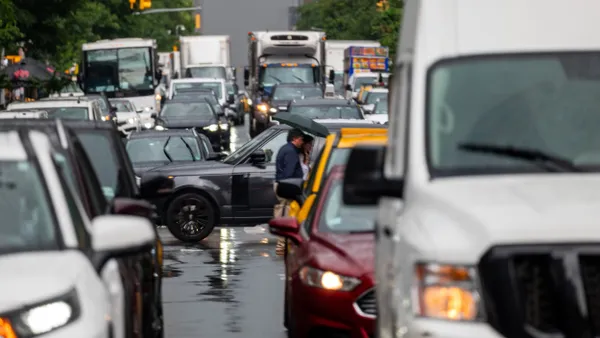Dive Brief:
- Aircraft manufacturing company Boeing confirmed on Wednesday it has successfully completed the first autonomous tests of its passenger air vehicle prototype in Manassas, VA.
BREAKING: It's another first for us. Along with @AuroraFlightSci we've successfully tested our passenger air vehicle. We continue our progress towards a safe and sustainable urban mobility ecosystem. #TheFutureIsBuiltHere pic.twitter.com/hwuw4d5jmz
— The Boeing Company (@Boeing) January 23, 2019
- The electric vertical takeoff and landing (eVTOL) aircraft — often dubbed as a "flying car" — completed a controlled takeoff, hover and landing, but it is not yet in a forward-moving test phase. Boeing says transitioning from vertical to forward-flight modes is the "most significant engineering challenge" for the eVTOL.
- "This is what revolution looks like, and it's because of autonomy," said John Langford, president and CEO of Aurora Flight Sciences, in a statement. "Certifiable autonomy is going to make quiet, clean and safe urban air mobility possible."
Dive Insight:
Despite how futuristic the concept of a "flying car" may seem, the technology is actively progressing toward a viable option for commercial transportation. At CES earlier this month, companies such as Bell Helicopter exhibited their eVTOL aircrafts, while experts took the stage for panel discussions to explain the benefits and challenges of this evolving technology.
It was clear from CES there are five main obstacles the flying car market will face before unlocking commercial opportunities: leadership, public acceptance, safety, partnerships and the ability to run autonomously. Boeing has begun to tackle the autonomy obstacle by running pilotless tests of its eVTOL — though other experts have predicted most flying vehicles will likely run with with a pilot initially, similar to how autonomous cars have tested service with safety drivers.
Boeing has been vague on the details of how it is getting around some of these other obstacles, such as safety and public acceptance — both of which will be issues the entire industry must tackle together. As with other autonomous vehicles, the public is skeptical of such transportation technologies, with a recent survey finding half of the U.S. respondents do not believe AVs will be safe. Leaders from public and private sectors have stepped in to encourage public education and engagement around the technology, though the call to action has so far resulted in little movement.
Following this week's flight, Boeing will likely remain at the front of the pack as a leader in eVTOL testing. Boeing cites its strong roots in the aviation industry as a competitive advantage for the company — especially when compared to other "trailblazers" of the flying car market, such as Uber Elevate — and says the company is positioned to "unlock the potential of the urban air mobility market."



